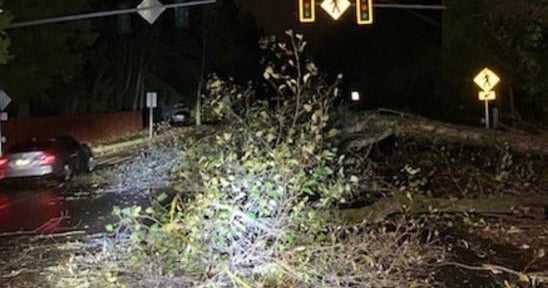Stormy weather delays James Webb Space Telescope launch from Christmas Eve to Christmas Day
Stormy weather at Europe's launch site in Kourou, French Guiana, has forced NASA and the European Space Agency to delay launch of the $10 billion James Webb Space Telescope from Christmas Eve to at least Christmas Day, officials said Tuesday.
Mission managers reviewed launch preparations earlier in the day and told reporters they were "go" for launch at 7:20 a.m. EST Friday. But a subsequent weather review prompted a decision to hold off rolling the rocket to the launch pad Wednesday and to delay Webb's launch by at least one day.
Arianespace, which manages the Ariane 5 for ESA, said an updated forecast will be issued Wednesday evening to confirm a Christmas Day launch. In the meantime, "the Ariane 5 launch vehicle and Webb are in stable and safe conditions in the Final Assembly Building."
Running years behind schedule and billions over budget, the James Webb Space Telescope is the most scientifically ambitious — and expensive — space science mission ever attempted.
With a mirror six times larger than the Hubble Space Telescope's, Webb was designed to capture faint infrared light from the first generation of stars and galaxies to form in the aftermath of the Big Bang birth of the universe some 13.8 billion years ago.
Webb also will study galactic evolution, the life cycles of stars, attempt to chart the formation of supermassive black holes and study the atmospheres of planets orbiting nearby stars to determine their habitability.
Closer to home, Webb will study planets in our own solar system, along with comets, asteroids and denizens of the remote Kuiper Belt, where leftover remnants of the solar system's formation orbit the sun in icy darkness.
"It's going to give us a better understanding of our universe and our place in it, who we are, what we are, the search that's eternal: why are we here, how did we get here?" said NASA Administrator Bill Nelson. "Webb is the keyhole into the past, and it's a groundbreaker for humanity's future."





